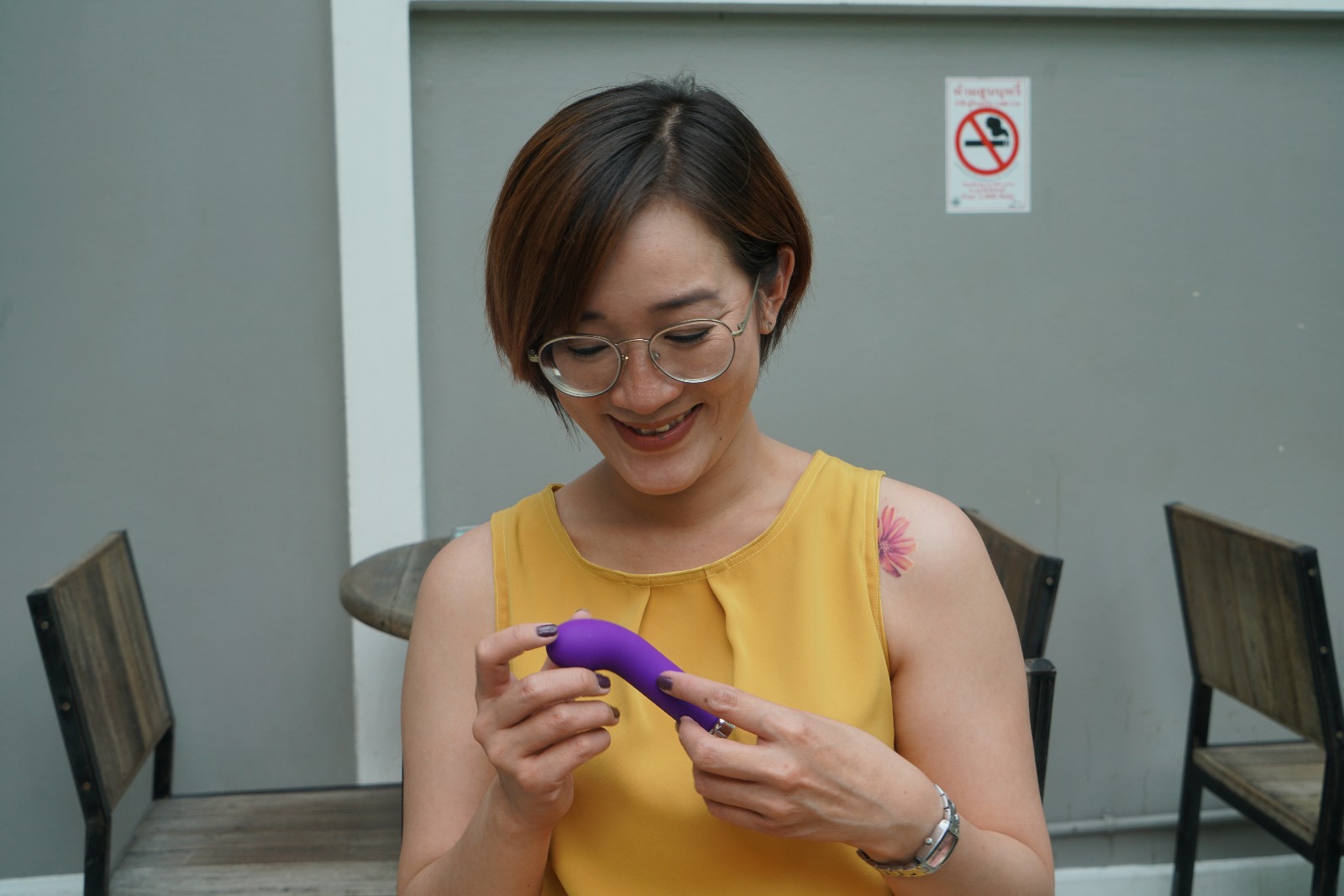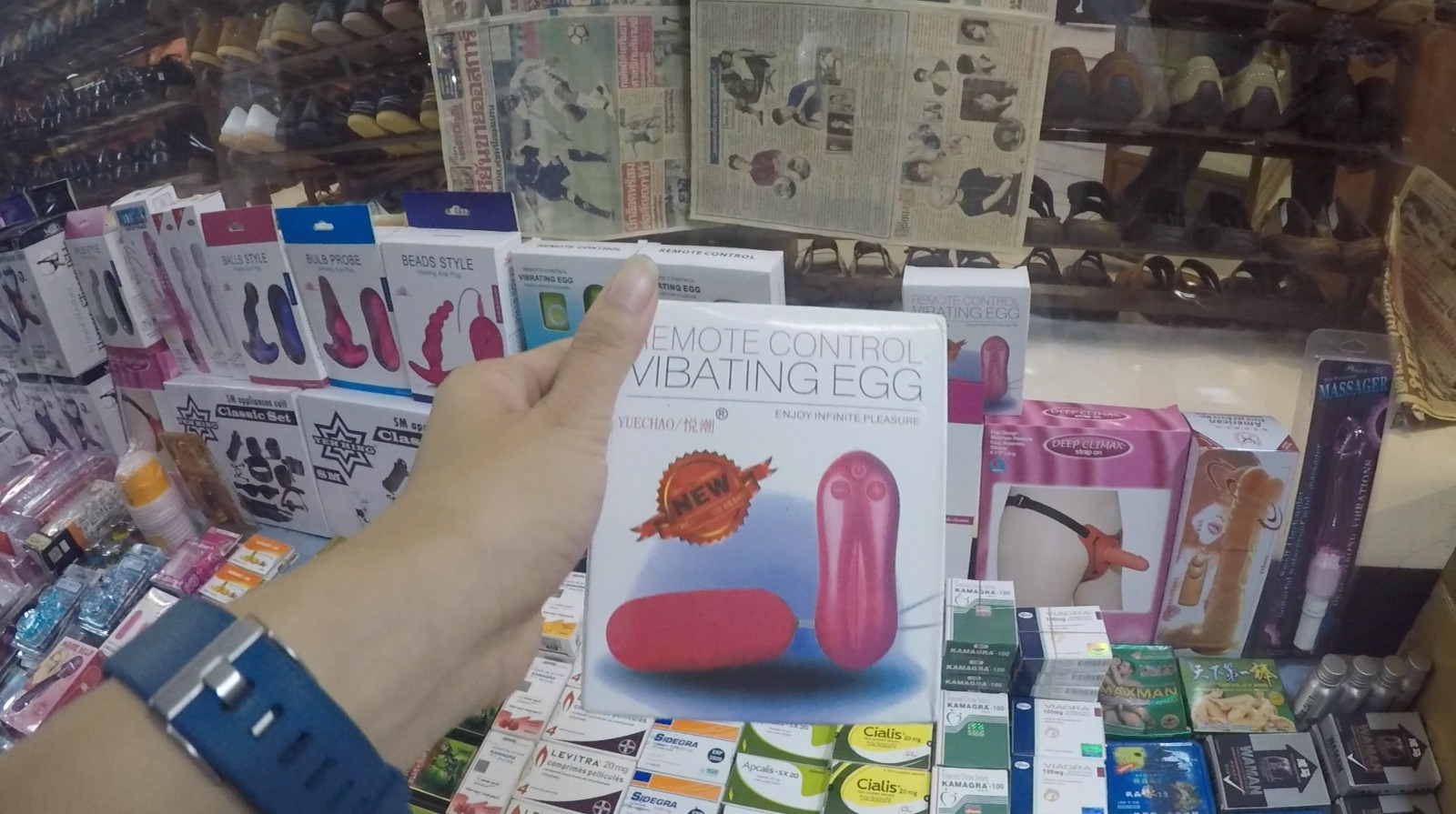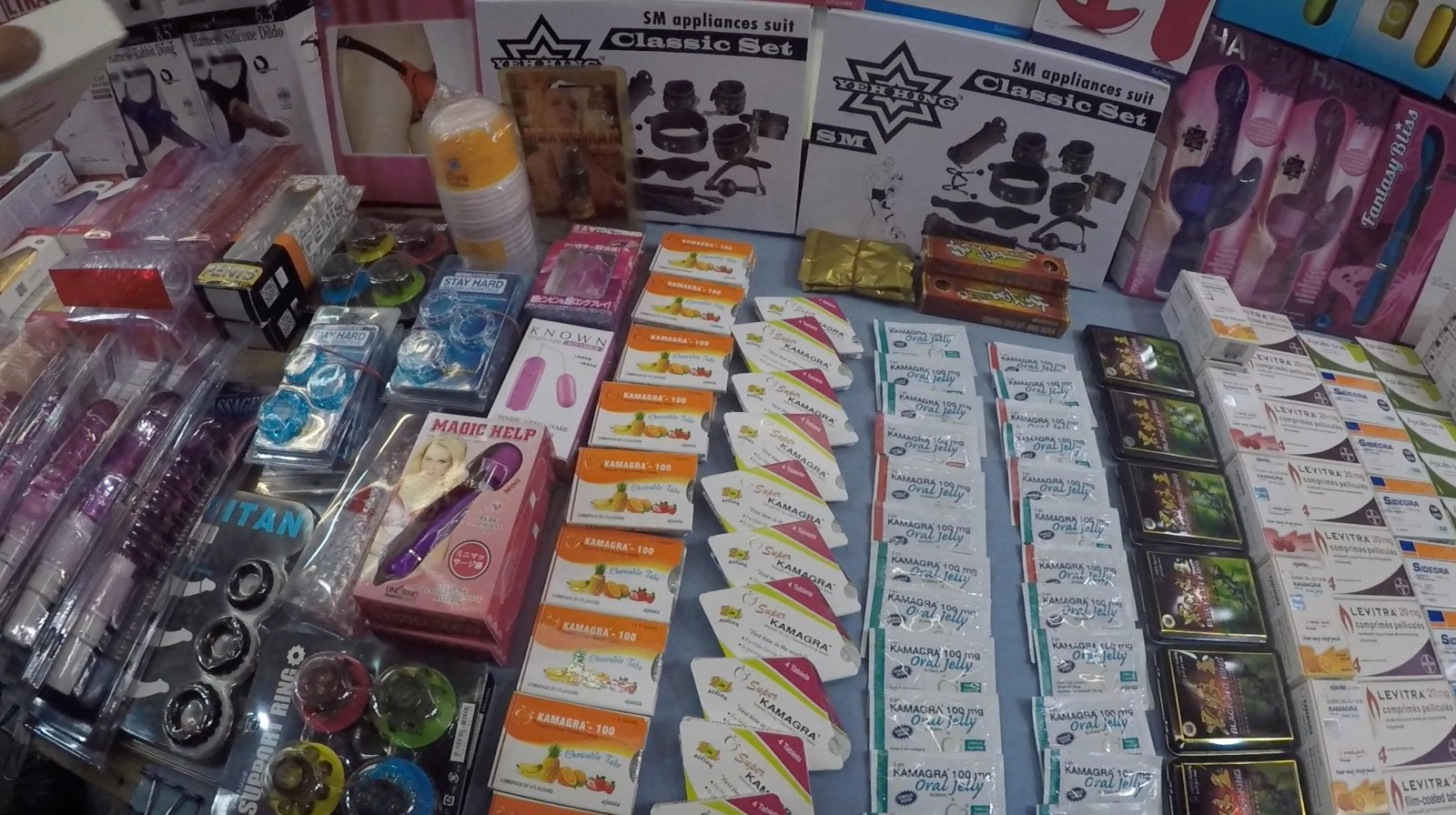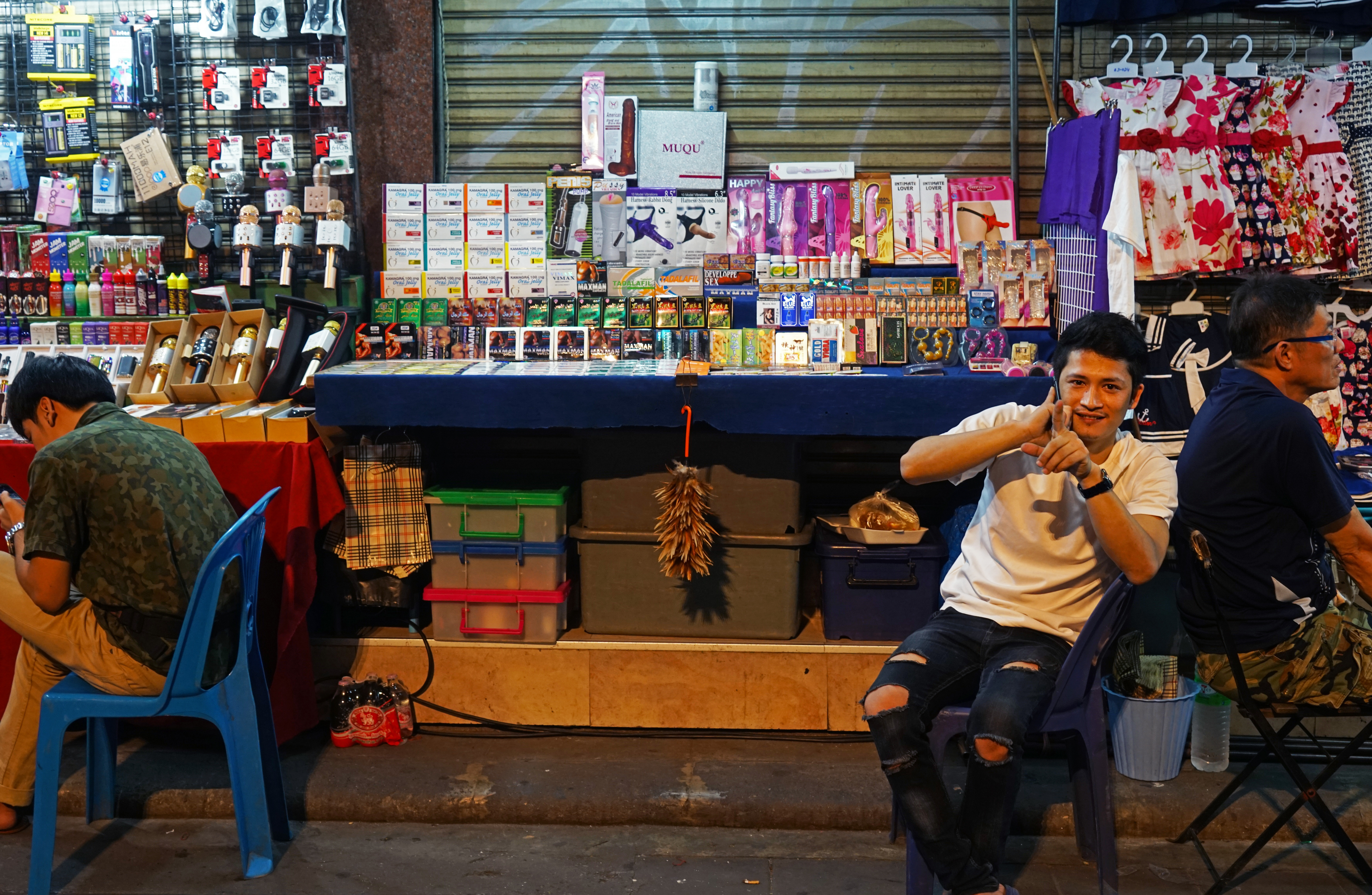You can drink on the streets, buy antibiotics without a prescription, and purchase a woman’s “companionship” with dispiriting ease, but in Thailand, you can’t buy a sex toy — at least not legally.
As incongruous as it seems, the Land of Smiles is one of the only countries in the world where sex toys remain illegal, a fact that attests to the decidedly conservative views of sexuality held by a majority of citizens.
This is a country where gynecologists are far more likely to coyly inquire “Have you had a girl/boyfriend before?” than bluntly ask if a patient is sexually active, a country where the word “sex” itself remains taboo in classrooms and daytime television.
All of the above are present-day realities human rights activist Nisarat Jongwisan is looking to change — starting with the sex toys.
“Our society has this mentality that our sexual satisfaction relies purely on the opposite sex. Especially among women. Many of them are literally taught from the time they’re kids to depend on a man’s masculinity,” Nisarat recently told Coconuts Bangkok, her eyes darting around the cafe where we’ve met as she looks for a place to smoke.
Nicknamed Tuk Ta, the 29-year-old is arguably responsible for getting more Thais talking about sex toys in the past month than they have in their entire lives, thanks to an appearance on Thai PBS’s Policies by the People, where opinionated Thais are invited to pitch a law, or changes to existing ones, to a panel of “experts” and juries comprised of fellow citizens.

“That’s why I went on the show,” she said, “to raise awareness about means of self-satisfaction. How sad is it that so many Thai women don’t even know what ‘finishing’ is? It’s a concept they can’t even comprehend.”
It’s safe to say the concept of “finishing” is not high on the priority list of the Ministry of Culture’s Salini Choomwan, who faced off with Tuk Ta on the panel.
Speaking on behalf of the buttoned-down status quo, Salini described sexual desire as a “natural impulse that is within our ability to control by activities like exercising or meditating.” (And she meant it, too.)
Unsurprisingly, Tuk Ta’s desire to alter Criminal Code Section 287 — which makes the trade or distribution of “obscene materials or things” punishable with up to three years in prison — quickly became a trending topic on social media.
Her point of view is straightforward: Since sexual satisfaction is a fundamental human desire, why shouldn’t it be a fundamental human right?
“I first learned about sex toys through a porno when I was 15,” Tuk Ta recalled, giggling at the memory of her DVD-era discovery. “It was a Japanese movie where the girls were playing with these classic egg vibrators. I was like ‘Wow, what is that? That looks like fun!”
Fast forward three years to an 18-year-old on a family trip to Japan (you know where this is going, don’t you?). Unwilling to pass up the golden opportunity, Tuk Ta secretly told her Thai tour guide to take her to a sex shop.
“And he did! That’s when I got my first sex toy,” she said, still clearly amused by the experience today.
In hindsight, she believes that was a turning point. “I realized that it wasn’t a painful experience, nor was I hurting anyone. It was a door to a whole new world to me.”

“Painful” can be an unfortunately accurate word to describe what can happen when you buy a sex toy in Thailand.
As anyone familiar with how things work in Thailand is aware, just because something is “illegal” doesn’t mean it’s not sold openly. Sex toys can be effortlessly found on the streets of such Bangkok red-light districts as Nana, Silom and Patpong — where law enforcement officers benefit handsomely from looking the other way.
Coconuts recently ventured to Nana, where we spoke to four vendors, all of whom openly sold sex toys ranging from THB500 (US$15) “egg style” vibrators to THB800 (US$24) rubber vaginas to high-end vibrators that fetch up to THB3,000 (about US$90).
All agreed that their customer base is approximately a 50/50 split between foreigners and Thais.
One vendor told us he makes more than 100 sales a day. So it’s safe to say a healthy market for sex toys exists.


Despite that demand, a quick survey of online shops for sex toys shows that most do not ship to Thailand. While you could try your luck with a few independent vendors on Amazon and Ebay, sex toys have a high chance of getting confiscated by customs, since their importation is illegal.
So how does one go about acquiring sex toys? Through decidedly sketchy means.
According to Tuk Ta, the biggest problem with sex toys being sold illegally is the fact that the products can’t be monitored, controlled, or regulated. There have been instances in the past where a woman allergic to latex had a bad reaction to a toy she thought was silicon since there were no labels on the package to warn her.
“You end up paying a shit load on [medical] bills because your insurance doesn’t cover that, and you can’t report anything since you technically broke the law,” she explained.
Further, by criminalizing sex toys, additional “risk costs” are added to the products, meaning sex toys aren’t just potentially more dangerous, they’re far more expensive than in other countries as well.
Legalizing sex toys would allow the government to be able to dictate where, how and to whom they could be sold — a far cry from our Nana experience, where toys were sold in the middle of the street, in broad daylight, right next to piles of trash and passing vehicles.

The push is on
Earlier this year, Tuk Ta created a petition on Change.org to push for sex toy legalization and has since collected more than 2,000 pledges. It’s a modest number, but one she hopes signals the baby steps necessary for a sexual revolution in Thailand.
She is currently working with a lawyer to compile research statistics from countries where sex toys are legal (and producing healthy tax revenue) like Japan and Germany.
“With this data, we’ll be able to debunk one of the most popular arguments against legalization,” that more readily available sex toys increase sex-related crimes, she said.
“In fact, it statistically does the opposite, and even lowers teen pregnancy rates. We’ll show them.”
But showing them won’t be easy. The duo is hoping to present their findings in the next three months, but lawmakers have demanded new statistics and surveys done specifically within Thailand, a project that would require far more than her limited funding would allow.
Even if they are legalized, Tuk Ta said, that bureaucratic step is secondary to the more challenging hurdle: changing society’s perceptions about sex.
Passing a law is one thing, but getting the people to understand it, let alone obey it, is a different story.
“Look at the Teenage Pregnancy Prevention and Alleviation Act of 2016, for example,” she said, referring to a law that mandates institutions provide sex education and hire teachers that can counsel student on such matters in order to lower teen pregnancy rates.
“Even though a great law has been passed, it hasn’t passed with society — the people who actually live with it; so the law doesn’t get used. I don’t want this to be like that.”
A 2016 Unicef summary of sex education in Thailand seems to back up her claims of a large disconnect between what’s on the books and what’s actually practiced in schools.
However, she still believes legalization can lay the groundwork for societal change, providing a guideline that might encourage people to become more comfortable with their sexuality.
“Like, hey, if the government says it’s OK, how bad can it be right?” she said.
“We live in a society where sexuality is shameful. If adolescent Thai teens, especially females, start experiencing sexual desire, you’re automatically awash with guilt and concern. You’re literally taught to feel that way. You’re afraid people are going to call you a pervert, a bad woman, or even insane.
“People or minors who aren’t interested in sex toys aren’t suddenly going to be interested just because they’re legal,” she reasoned. “In fact, as soon as they come out of the dark, fewer kids will be curious to find out what these things formerly deemed ‘dangerous’ are.
“I just want Thailand to know that there’s room for all different types of people in this country. Kids shouldn’t have to grow up the way I did [afraid of their impulses].”






Reader Interactions